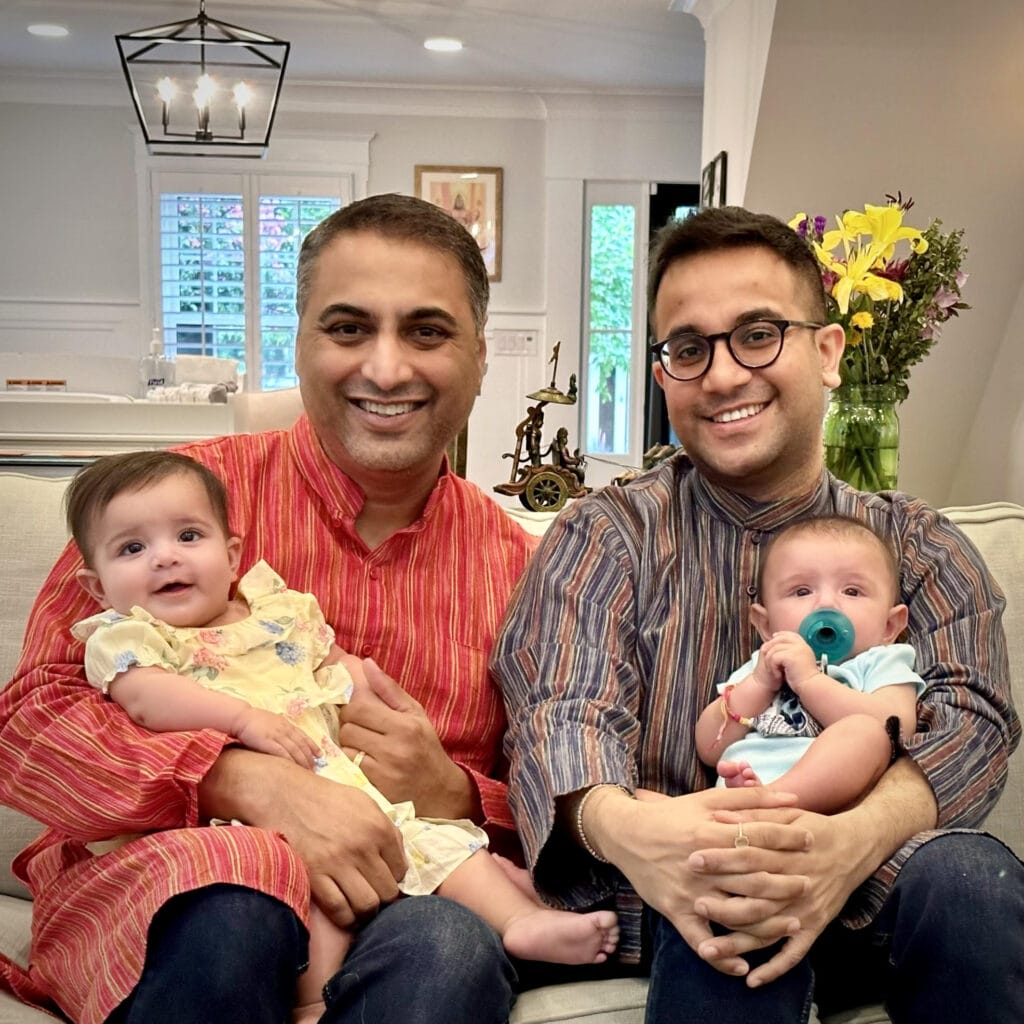Parag Mehta and Vaibhav Jain were married in Washington DC on January 19, 2017. On March 5, 2020, the couple attempted to register their marriage with the Consulate of India in New York City. Nevertheless, they were denied.
The newlyweds contended that this denial was in clear violation of India’s Constitution, which prohibits discrimination on the basis of sex. “After all, if I were a woman, Vaibhav would have been able to register our marriage without issue,” said Mehta in an email to GLAAD. Instead, they sued for redress and their case was eventually transferred from the High Court of Delhi to the Supreme Court of India along with dozens of other petitioners.
Finally, the courts have come to a decision.
On Tuesday, India’s Supreme Court rejected pleas to legalize same-sex marriage, but affirms that citizens have the right to be in LGBTQ relationships without facing discrimination. While the court decided that the issue of same-sex marriage is up to the legislature and out of the scope of the judicial system, Chief Justice DY Chandrachud expressed that the right to choose one’s partner is one which “goes to the root of the right to life and liberty under Article 21 [of India’s constitution],”Al Jazeera reports.
Meanwhile, Mehta and Jain say the ruling has left them “heartbroken.”
“We are heartbroken by the verdict of India’s Supreme Court today. But we have been here before. This court failed to decriminalize homosexuality before finally reversing itself in 2018,” Mehta and Jain said in a joint statement to GLAAD.
Sara Kate Ellis, GLAAD’s president and CEO, responded: “The ruling is a stunning disappointment for millions of LGBTQ families, both in India and around the globe. LGBTQ families deserve the protections that come with marriage recognition. The LGBTQ community in India, and the plaintiffs and their legal teams, have demonstrated resilience and persistence in fighting for the right for their relationships and families to be recognized and protected.”
Throughout history, India has recognized and celebrated gender diversity, until a new law was established during British colonialism in 1861. The law went unchallenged until 2001 when the Naz Foundation, a nonprofit organization dedicated to HIV/AIDS awareness, filed a petition. LGBTQ relations were decriminalized for the first time by the New Delhi High Court in 2009, a ruling overturned by the Indian Supreme Court in 2012. A second petition would eventually lead to the final Supreme Court ruling in 2018, decriminalizing homosexuality.
The current legal discussion surrounding marriage equality is based on more than 20 petitions claiming that the right to choose one’s spouse should be extended to LGBTQ citizens, according to the BBC. India has a framework in place within the Special Marriage Act of 1954 which allows for interfaith marriage and the ruling today was to either accept or reject a proposed amendment to provide same-sex marriages the same civil protection. According to today’s ruling, such a task belongs to India’s parliament and therefore cannot be decided in the courts. This has come as a disappointment to the petitioners and millions of queer people in India and beyond.
“In prior judgements involving heterosexual couples, the Supreme Court recognized marriage as a Constitutionally guaranteed fundamental right—one that is ‘integral’ to the right to life. Now, while addressing queer couples, the Court reverses precedent to effectively say ‘never mind, there’s no such right after all,’” Udit Sood said to GLAAD in an email.
Sood – a Delhi-born Indian citizen who now lives and practices law in the US – says the ruling is “devastating blow to queer kids growing up in India.”
“Today’s judgment tells those kids loud and clear that marriage (and all benefits that flow from it) are indeed available to them – all they need [to] do is lie to themselves, to their partners, their families, and their communities. But if an honest life is preferred, then dreams of a socially and legally recognized family must be abandoned,” Sood continued.
As many LGBTQ people are disappointed in India and abroad, some maintain hope for the future.
“India will ultimately get this right. Tomorrow or tomorrow or tomorrow. And future generations will look back and wonder what all the fuss was about,” said Parag Mehta.













